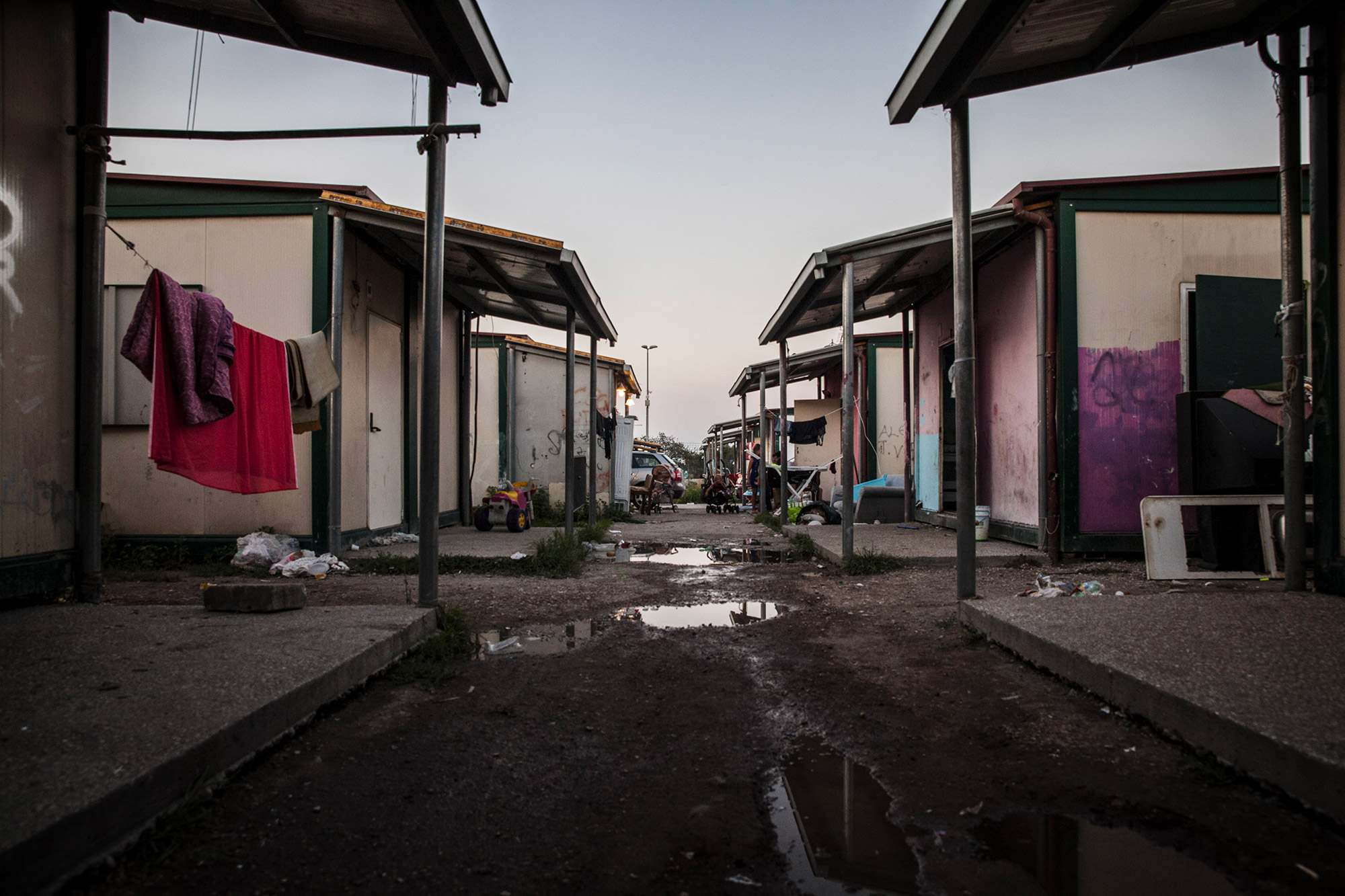 " alt="Beyond the Camp: achieving the definitive overcoming of mono-ethnic settlements in Italy">
©All rights reserved Stefano Sbrulli
" alt="Beyond the Camp: achieving the definitive overcoming of mono-ethnic settlements in Italy">
©All rights reserved Stefano Sbrulli
Beyond the Camp: achieving the definitive overcoming
of mono-ethnic settlements in Italy
Grantee: Associazione 21 luglio
Location: Italy, Europe
Grant Cycle: 2023 – 2026
Type of Grant: three-year program support,
Human Welfare & Rights
Website: 21luglio.org
Human Welfare
& Rights
Associazione 21 luglio pursues two interdependent objectives: the denunciation of discriminatory practices, and the advancement of human rights, with a particular focus on the rights of children and adolescents facing adversity and vulnerability in contexts of severe housing segregation.
To this end, since its foundation in 2010 Associazione 21 luglio has been working on projects aimed at promoting the social rights of children and adolescents living in difficult and vulnerable conditions in “Roma camps”. The association adopts a systemic change approach to address and overcome the reality of the “Roma camp system”, which in Italy - the only case in Europe - has for decades trapped tens of thousands of people in a vicious circle of poverty and exclusion. Over the years, the association has gained credibility and is currently the national contact point of the Network for Roma Early Childhood (REYN) formed by professionals and para-professionals working closely with Roma communities in the field of early childhood development, and is also the national coordinator of the Roma Civil Monitor (RCM) 2021-2025 initiative, promoted by the European Commission within DG Just in 28 European countries.
The “Roma camp system” originated in the 1980s, with the first arrival in Italy of Roma families from the former Republic of Yugoslavia fleeing the first signs of the profound civil war that was to shake the entire region in the following years. This mass migration was misunderstood by policymakers as a consequence of the “nomadic” heritage of their culture. At the beginning of the 1990s, a number of administrators started building open-air mono-ethnic settlements, all of which had the same characteristics. They were far from the city, fenced in, often lacked services and were located in unhealthy areas unsuitable for housing.
In Italy, there are currently 122 mono-ethnic Roma-only settlements still present in 64 municipalities, where 13,476 people live, including 7,419 minors. Research shows that being born and living in a mono-ethnic and overcrowded settlement has a major impact on the internal wellbeing of individuals and their families. The distance of these settlements from the rest of the city makes it difficult for people to interact with the outside world. There are few external stimuli, and the space tends to be very insular. This can have negative consequences for individuals in terms of planning their future and leaving the settlement. The highest price is paid by minors, whose lives within the settlement appear to be constrained by a lack of social mobility, resulting in a denial of their right to aspire to a future that differs from that of their parents.
Associazione 21 luglio employs a multi-faceted strategy to achieve racial desegregation of the Roma, that involves policymakers, media operators, teachers, Roma and Sinti communities and public opinion. The objective of ending the construction of new “Roma camps” in Italy was achieved in 2018 with the construction of the last settlement realised to date in Italy. In the following years, thanks to the impetus of Associazione 21 luglio, the national context was favourable to actions aimed at the definitive eradication of the “Roma camps”.
The collaboration between the Nando and Elsa Peretti Foundation (NaEPF) and Associazione 21 luglio began in 2014 with a project centred on empowering Roma children through art education in two camps in Rome. A project that is still ongoing today. In 2023 the NaEPF has granted a three-year program support to the “Beyond the Camp” project. The “Beyond the Camp” project aims to engage at least 32 of the 64 Italian municipalities where “Roma camps” still exist, representing approximately 4 million people who will indirectly benefit from the project’s actions. The innovative character of the project lies in its participatory approach based on the Community Organising methodology, which foresees the direct involvement of the settlements’ inhabitants in all stages of the process. In a climate of trust, they are invited to express their opinions, make requests and propose solutions. They are also encouraged to define, together and as a territorial community, intervention strategies, timeframes and the most effective forms of action to overcome the settlement.
